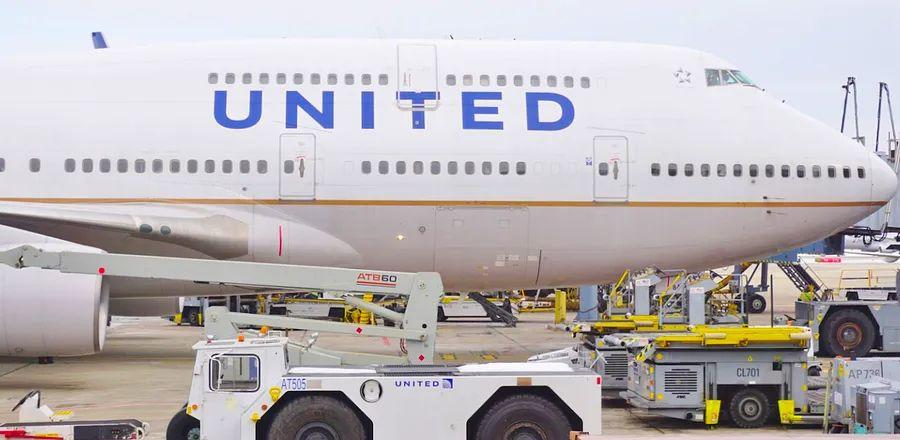Delay in 5G Launch Due to Airline Disruption Warnings

AT&T and Verizon will postpone the rollout of new wireless services near major airports after the country’s largest airlines expressed concerns that it would interfere with aircraft technology and lead to significant flight disruptions.
The telecommunications companies' decision came on Tuesday, as the Biden administration sought to mediate between the telecom firms and airlines regarding the planned rollout of new 5G services set for Wednesday.
Airlines are requesting a ban on the new service within a two-mile radius of airport runways.
AT&T announced it would delay activating new cell towers near runways at certain airports—though it did not specify how many or for what duration—and will collaborate with federal regulators to resolve the conflict.
Shortly afterward, Verizon announced it will roll out its 5G network but mentioned, “we have voluntarily chosen to restrict our 5G coverage around airports.” The company attributed the decision to the airlines and the Federal Aviation Administration (FAA), stating they “have not been able to fully address 5G navigation around airports,” despite its successful operation in over 40 countries.
These announcements followed a stark warning from the airline industry regarding the potential effects of a new 5G service on flights. CEOs of the nation's largest airlines indicated that interference with aircraft systems could be more severe than initially anticipated, rendering many flights unfeasible.
In a letter sent to federal officials, including Transportation Secretary Pete Buttigieg, the CEOs bluntly stated, “if the service is not restricted near major airports, the nation's commerce will come to a standstill,” underscoring their urgent concerns.
President Joe Biden remarked that the agreements made by AT&T and Verizon “will prevent potentially catastrophic disruptions to passenger travel, cargo operations, and our economic recovery, while allowing over 90 percent of wireless tower deployments to proceed as planned.” He assured that the administration would continue collaborating with both parties to find a lasting solution around critical airports.
The new high-speed wireless service operates within the C-Band segment of the radio spectrum, which is in close proximity to the frequencies used by altimeters—devices that measure an aircraft's altitude. Altimeters play a crucial role in assisting pilots during low-visibility landings and are interconnected with other aircraft systems.
AT&T and Verizon assert that their equipment will not disrupt aircraft electronics, claiming the technology is being used safely in numerous other countries.
The CEOs warned, “If our major hubs are not cleared for operations, the vast majority of travelers and shipping will effectively be grounded. This means that on a day like yesterday, over 1,100 flights and 100,000 passengers could face cancellations, diversions, or delays.”
The conflict between the two industries and their competing regulators—the FAA and the Federal Communications Commission (FCC), which manages radio spectrum—poses a further threat to an aviation sector already battered by the pandemic for nearly two years.
A crisis years in the making
The airline industry and the FAA have indicated that they have attempted to raise concerns about possible interference from 5G C-Band, but the FCC has overlooked their warnings.
Telecom companies, the FCC, and their advocates maintain that C-Band and aircraft altimeters are sufficiently separated in the radio spectrum to prevent interference. They also contend that the aviation industry has been aware of C-Band technology for several years but took no action to prepare—airlines opted not to upgrade altimeters that could be affected, and the FAA delayed surveying aircraft equipment until just a few weeks ago.
Following T-Mobile's acquisition of Sprint, which granted it mid-band spectrum, AT&T and Verizon invested tens of billions of dollars in C-Band spectrum during a government auction managed by the FCC to address their own mid-band requirements, and then spent even more to establish new networks they intended to launch in early December.
In light of the airlines' concerns, however, they initially consented to postpone the service until early January.
On New Year’s Eve, Buttigieg and FAA Administrator Stephen Dickson requested another delay from the companies, cautioning about “unacceptable disruption” to air travel.
AT&T CEO John Stankey and Verizon CEO Hans Vestberg dismissed the request in a letter that conveyed a critical, even sarcastic tone. However, after receiving intervention that reached the White House, the CEOs agreed to a shorter delay but indicated there would be no further concessions.
In this agreement, the telecom companies consented to lower the power of their networks around 50 airports for a duration of six months, mirroring wireless restrictions imposed in France. In return, the FAA and the Transportation Department pledged not to further obstruct the deployment of 5G C-Band.
While Biden commended the agreement, the airlines expressed dissatisfaction, viewing it as a win for the telecoms that failed to adequately address their issues.

1

2

3

4

5
Evaluation :
5/5